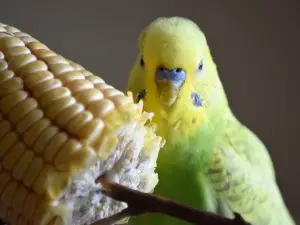
The more you live with your budgie the more you will learn what their different behaviors mean, but this doesn’t mean that these birds won’t do things that you aren’t used to, like flapping their wings on their perch
This is a look into why your budgie flaps its wings on its perch.
Table of Contents
Budgie flapping wings on perch:
We’re used to budgies flying around and using their wings to do this, but these birds can also flap their wings on their perch and not get up and fly at all, here are reasons why your budgie may be flapping its wings on its perch.
Exercising:
Exercise is needed for not only wild animals but for domestic animals as well. A bird that flaps its wings while on its perch is trying to exercise its wings.
These birds are used to getting a lot of exercise while flying around in the wild so if you don’t let your bird out often enough the bird will do its best to exercise in the cage by flapping its wings while on its perch
This may also be the bird’s way of trying to tell you that it wants to be let out so that it can exercise.
What to do:
Letting your bird out to exercise is recommended, budgies and other types of domesticated birds for that matter, who are not let out to exercise, and who never leave their cages, will start to become overweight as they can’t use the energy from the food that they eat to fly.
This can cause the birds to develop fatty liver disease and even tumors.
Letting your budgie out to fly will allow it to get some exercise in, a trained budgie will return to its cage when you direct it to but if your budgie is untrained then catching it may be a bit difficult, but it won’t be impossible.
You can let the bird out for about an hour each day to fly and exercise, close all doors and windows in the room where you’re letting the bird fly around in.
Also, switch off any ceiling fans and stoves and turn any mirrors in the room away while your bird is flying.
Wanting attention:
Not only do budgies want and need exercise these birds also need and want attention from you, the birds will flap their wings as a way of grabbing your attention and trying to get you to play with them.
These birds don’t really have any other way of communicating that it wants your attention so the bird will simply flap its wings to get your attention.
What to do:
Giving the bird the attention that it needs will get it to stop flapping its wings while it’s on its perch and will get it to settle down.
Give the bird an hour of attention each day. If you can’t spend an hour straight with the bird you can split the attention session into many shorter sessions, this will still be satisfying to the bird.
Danger:
These birds will flap their wings when there is a threat or some sort of danger around them. The wing flapping may be to warn other birds of the danger or try to intimidate the threat.
If the bird flaps its wings very quickly, and the bird has a friend close by, then the bird may be trying to warn its friend of the danger.
The wing flapping may also be accompanied by other aggressive behaviors like lunging or even biting the predator if the bird sees fit to do so. All this flapping and aggression is the bird’s way of scaring the predator off.
What to do:
Noticing that the bird is flapping its wings on its perch and getting rid of the danger will get your bird to stop flapping its wings.
What you perceive as a danger and what the bird perceives as a danger may not be the same thing. Budgies are very small and a lot of things can be a danger to them.
Things that budgies may perceive as a danger include predator birds, wild animals, domestic animals, and even people that it doesn’t know.
Remove this danger and see how the bird acts afterward.
If you enjoyed this article then you may also be interested in other bird related articles. Here are some articles that you may be interested in: Budgie Squeaking When Flying, Indian Ringneck Beak Problems, Why Is My Bird Flapping Its Wings At Me, Budgie Talking Silently, Bird Nail Ripped Off, Budgie Opens Beak When I Talk To Him, Bird Tilting Head Sideways, Budgie Hissing Sound, Budgie Cooing

